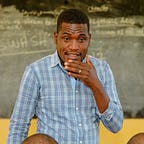WASH CRISIS IN TANZANIA
In a nation where one third of the country is arid to semi-arid, it is very difficult for people to find access to clean, sanitary water if they don’t live near one of the three major lakes that border the country. As a result, Tanzania’s ground water is the major source of water for the nation’s people; however it’s not always clean. Many of these ground water wells are located near or next to toxic drainage systems, which leak into the fresh ground water and contaminate it.
Over 24 million people are impacted by the The United Republic of Tanzania’s water crisis; that’s almost half of the population of Tanzania. But, it’s not just about a lack of basic access to safe water. In Tanzania today, over 43 million do not practice proper sanitation. That’s the majority of people living in the country.
In Tanzania, demand for both water and sanitation are high and the market for water products (storage tanks, pipes, rain harvesting facilities, etc.) and suppliers appears to be dynamic. By taking advantage of the growing digital finance sector, there is a strong opportunity to scale our impact in Tanzania.
Together, water access, sanitation, and hygiene are referred to as “WASH,” and Tanzania is experiencing a WASH crisis. WASH impacts not only community health, but economic status, access to education, and happiness around the world.
According to The Joint Monitoring Programme (“JMP”), a global database on WASH around the globe, measures water access on a scale, with basic access being safe water which can be collected in a roundtrip of 30 minutes or less. Right now, 43 percent of Tanzanians are relying on water that does not meet this standard.
- In Tanzania, 17 percent of people have no place to wash their hands. Without hand washing at critical times, like after using the bathroom and before eating, people are much more likely to become sick. Another 35 percent of the population have a hand washing facility but no reliable source of safe water or soap.
- Women and children traditionally bear the weight of the water problems in their communities, waking early to gather water from faraway sources and making several trips each day. Of those women and children carrying water, data shows that they are likely gathering it from unsafe sources like rivers, canals, ponds, and unprotected structures like hand-dug wells and natural springs.
In Tanzania today, the water situation is not fixed nor nearly perfect, but the government and the people know how important it is to have access to sanitary options and continue to work towards that goal.
